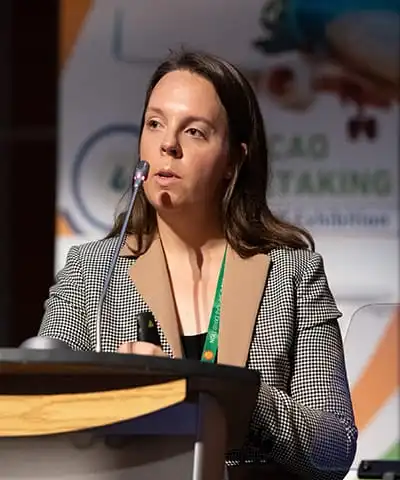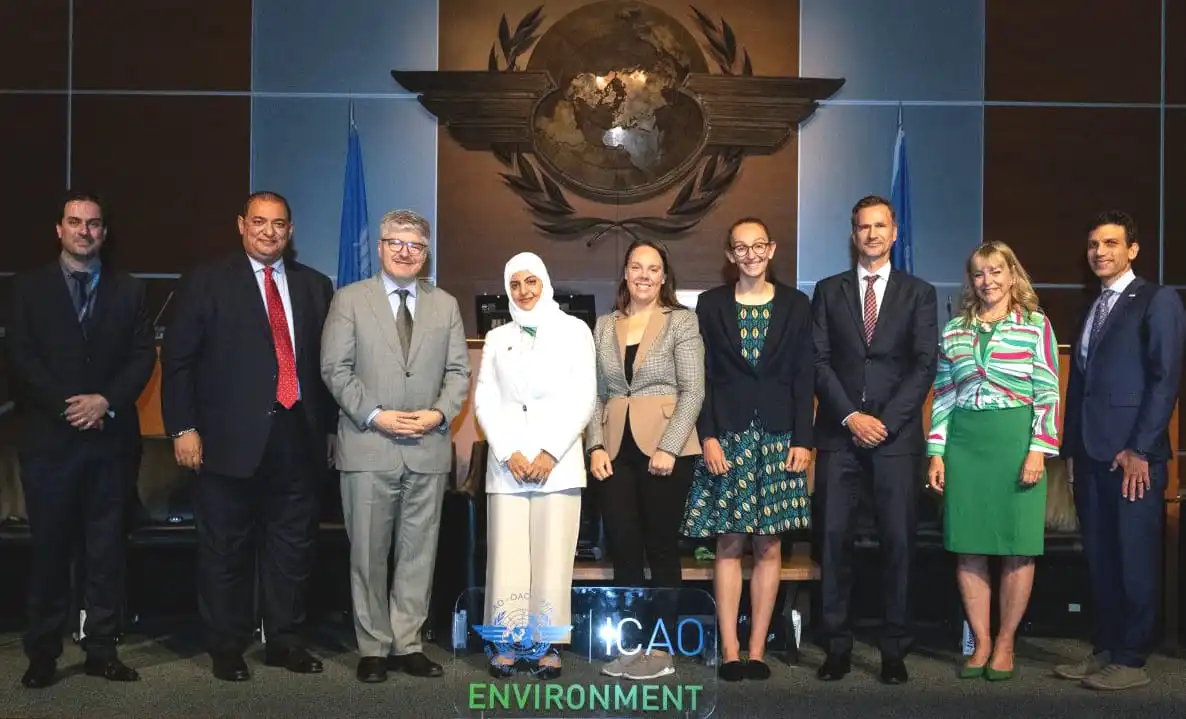 By Madison Carroll, CoSAFA Executive Director
By Madison Carroll, CoSAFA Executive Director
I had the honor to speak about CoSAFA’s work during Session 4: SAF, LCAF and Cleaner Energies Session, in the “Certification and Accounting of Cleaner Energies for Aviation” panel during the ICAO 2023 Stocktaking seminar held in Montreal from July 11–13.
During these three days together, we focused on the most critical decarbonization issues for aviation, and these discussions, beneficial as they were, demonstrated that we have a heavy load and a long runway ahead to advance decarbonization in this critical global sector.
Takeaway 1:
Global Scaling While Reducing Cost Burdens
Scaling Up
We already know SAF will be aviation’s major decarbonization lever between now and 2050, and scaling SAF production to meet global demand is the first hurdle.
Global SAF growth relies on building a foundation to support the production of SAF in both developed and developing countries. This effort starts with sustainable global feedstocks, which are geographically dependent — a sustainable feedstock in one region may not have the same sustainability if grown elsewhere. We must ensure that global guidelines consider these geographical differences and enable growth that supports the strengths of each region.
Cost Considerations
Cost is a major barrier to SAF production and uptake. We absolutely must continue to minimize additional costs to SAF.
- Connect the global market. Efficiently connecting operators paying for SAF with geographically isolated SAF production through book and claim provides a global customer base for SAF production in developing countries. These feedstock-rich regions can have a global customer base to support SAF growth even in areas with limited but growing air traffic.
- Reduce SAF costs by providing certainty, credibility, and minimizing friction. Reducing risk in SAF markets is critical to gain investor support. Book and claim provides a demand signal for production and a consistent customer base. But to enable a growing number of SAF sales, these transactions must be supported by global fair rules that demonstrate credibility in SAF transactions and SAF use, while reducing friction in the marketplace. These fair rules must be developed in a global context and remain neutral from proprietary standards and barriers that both complicate and add to the price of each transaction.
Takeaway 2:
Financing the Aviation Energy Transition
The unavoidable truth is that the aviation energy transition will be costly, requiring expensive changes to aircraft, airports, fuel and alternative energy supply infrastructure, training, and much more.
Investments are being made by the private sector, governments, and philanthropists but more must be done.
As Jan Toschka, President of Shell Aviation, said during the event, “Capital isn’t stupid.”
We must de-risk investment in the aviation energy transition using:
- Policies that provide longevity and certainty of government support for scaling current and enabling future production facilities and infrastructure development.
- Market mechanisms that enable both the cost to be shared across the supply chain and smart long-term investments.
To have a conversation about how the CoSAFA methodology addresses these concerns, please reach out to please reach out to me.
Note: The ICAO Stocktaking Presentations are available on ICAO TV (you must create an account to view). To see the “Certification and Accounting of Cleaner Energies for Aviation” panel go to the video (link). The CoSAFA Fair Rules overview starts at 45:45 in this segment.
I also encourage you to view the session in its entirety, with valuable information shared from:
- Maryam AlBalooshi, UAE Representative in the ICAO CAEP (panel moderator)
- Laura Hutchinson, RMI/SABA
- Adam Klauber, World Energy
- Dannis Poon, EcoCeres
- Michael Schneider, IATA
- Bruno Silva, ICAO


